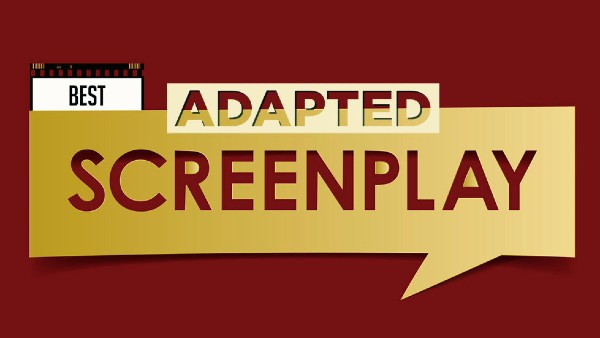Our producer-at-large Father Vince Kuna, C.S.C., a USC film-school grad, does a regular feature here called BASED ON, looking at literary works adapted into TV or movies.
Here, he continues a series called Best of the Decades, looking this time at the Best Adapted Screenplays of the 1990s.
Best Family Film
Babe (1995) *While rated G, the film deals with the harsh realities of farm life and may not be suitable for small children.
The mostly live-action film tops the list of family films almost by default — a quick glance down the rest of this article reveals the '90s, probably more than any other decade, dealt with serious subject matter, first and foremost, the Holocaust. Nevertheless, the lighthearted Babe holds up nicely.
Imagine George Orwell’s Animal Farm populated by more benevolent livestock, and you have Babe. While the farm animals interact with human characters (Oscar-nominated James Cromwell best among them), on their own, they’re able to capture the viewer’s attention for an entire feature narrative, remarkable then and now. Today, the most popular “pet” films, such as The Dog’s Purpose anthology series, only demand our furry friends entertain us one short film story at a time.
Best Source Material
The English Patient (1996)
I read The English Patient the summer after my freshman year in college. “The English language” could have substituted as the title or subtitle given how well-crafted each individual sentence was. Michael Ondaatje’s poetic and impressionistic prose reminded me of the master, William Shakespeare and his famed dramas.
Ondaatje told his WWII epic anachronistically and Anthony Minghella adapted it as such into a Best Picture Oscar in 1996. The non-linear style called less attention to itself, than a similarly fashioned film of the time, Pulp Fiction.
Best Adaptation
The Thin Red Line (1998)
Based on his own combat service, James Jones’ novel describes the Pacific Theater of WWII in a realistic and psychologically haunting framework. His fragmented style traces dozens of fighting men journeying story arcs; reading the war saga, I found myself starting, stopping for a while, and restarting all the while suspecting Jones didn’t come to any deeper insight other than, “war is hell.”
Terrence Malick realizes all that Jones intended and much, much more. “War is hell,” for sure, but one gets the sense soldiers battle out of their own personal purgatories beyond what tactical mission their superiors order up. Through, the hell, light from the heavens breaks through in subtle moments filtered through John Toll’s lush cinematography.
Quite simply, I was blown away upon originally seeing the film on the big screen with three of my college swimming buddies. Jim Caviezel’s turn as a Private Witt, especially, impressed me. I found him to be a Christ-like figure in the midst of a whole lot of madness.
Mel Gibson saw his performance and casted him for The Passion of the Christ. It played a part in my seeing the world beyond simply naturalistic terms—something more of a philosophical and I daresay, theological bent. It’s the best adaptation of the 90s. If I get through this series by eventually considering the 1920s through 1980s, I wager it may stand as the “best of the best.”
Best of the rest by year: Reversal of Fortune (1990)/book Reversal of Fortune: Inside the von Bülow Case by Alan Dershowitz; Europa Europa (1991)/book I Was Hitler Youth by Solomon Perel; Enchanted April (1992)/novel by Elizabeth von Arnim; Schindler’s List (1993)/novel Schindler’s Ark by Thomas Keneally; The Shawshank Redemption (1994)/short story Rita Hayworth and Shawshank Redemption by Stephen King; Apollo 13 (1995)/book Lost Moon by Jim Lovell; Hamlet (1996)/play by William Shakespeare; L.A. Confidential (1997)/novel by James Ellroy; A Simple Plan (1998)/novel by Scott Smith; The Talented Mr. Ripley (1999)/novel by Patricia Highsmith
Image: Shutterstock
Click here to visit Father Vince Kuna’s IMDB page.
Keep up with Family Theater Productions on our website, Facebook, Twitter, Instagram and YouTube.
